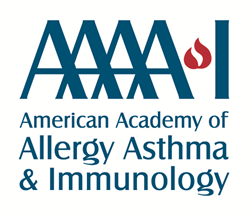
“It is important to recognize that this medication can cause AGEP, a condition that is usually easy to resolve but can lead to serious complications.” – Jean-David Bouaziz, MD, PhD
MILWAUKEE (PRWEB)
June 08, 2020
A case recently published in The Journal of Allergy and Clinical Immunology: In Practice (JACI: In Practice) demonstrates that acute generalized exanthematous pustulosis (AGEP) may be an effect of hydroxychloroquine, a drug that has been commonly used off-label to treat COVID-19.
AGEP is a rare reaction usually induced by medication. During a reaction, acute non-follicular pustules form atop areas of red, swollen skin. The reaction is sometimes accompanied by additional symptoms such as fever and headaches.
The paper examined the case of a 76-year-old patient who first entered the emergency room on March 23, where chest scans revealed results consistent with COVID-19. His clinical symptoms began to increase on March 24 and he was prescribed hydroxychloroquine (200mg three times daily) associated with azithromycin and ceftriaxone. His condition worsened on March 29 and he required invasive mechanical ventilation. Soon after, COVID-19 was formally confirmed via a real time polymerase chain reaction test from the nasopharynx.
While the patient did begin to exhibit signs of improvement, on April 3 a pustular eruption atop red, swollen areas of skin developed. It started forming originally along skin folds, but quickly affected 30% of the body surface area. AGEP was diagnosed, and because the rash was already present the day voriconazole was started and 24 hours after the last dose of piperacillin-tazobactam, hydroxychloroquine was determined to be the most likely culprit.
Hydroxychloroquine has numerous skin side effects. The authors of this paper searched the PubMed database for any peer-reviewed articles using the terms “hydroxychloroquine” and “acute generalized exanthematous pustulosis” and found 35 results.
“This isn’t the first case that has been reported where hydroxychloroquine induced AGEP,” said corresponding author Jean-David Bouaziz, MD, PhD. “While studies have not proven any benefit to prescribing hydroxychloroquine for COVID-19, it continues to be used off-label. It is important to recognize that this medication can cause AGEP, a condition that is usually easy to resolve but can lead to serious complications.”
You can learn more about drug allergies on the American Academy of Allergy, Asthma & Immunology website, aaaai.org.
The American Academy of Allergy, Asthma & Immunology (AAAAI) represents allergists, asthma specialists, clinical immunologists, allied health professionals and others with a special interest in the research and treatment of allergic and immunologic diseases. Established in 1943, the AAAAI has more than 7,100 members in the United States, Canada and 72 other countries. The AAAAI’s Find an Allergist/Immunologist service is a trusted resource to help you find a specialist close to home.
Share article on social media or email:

